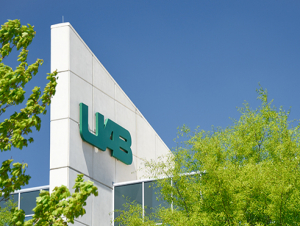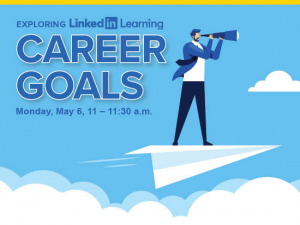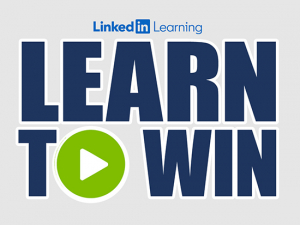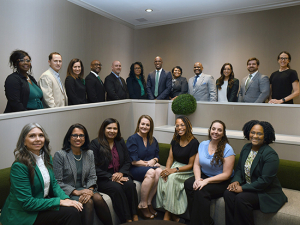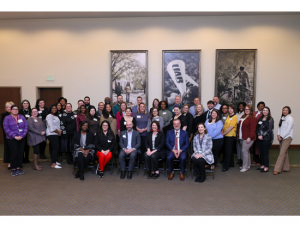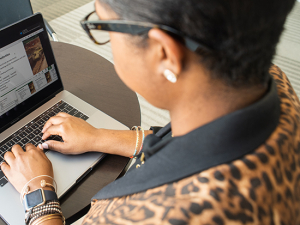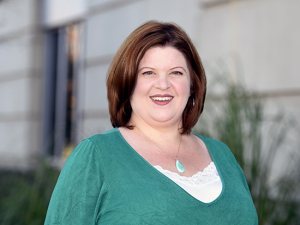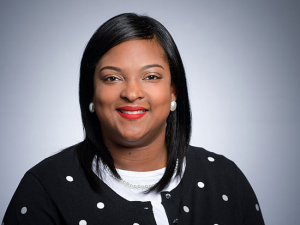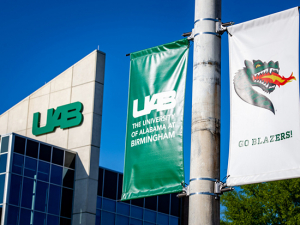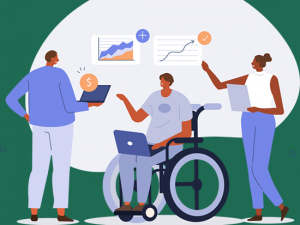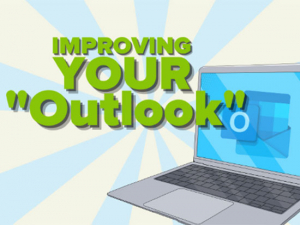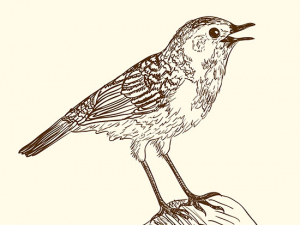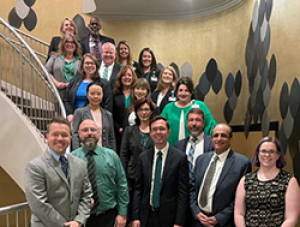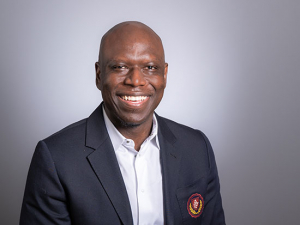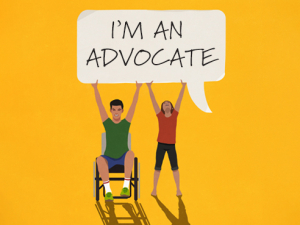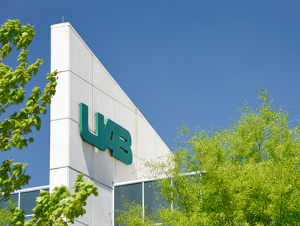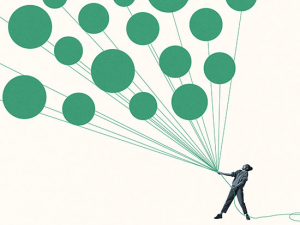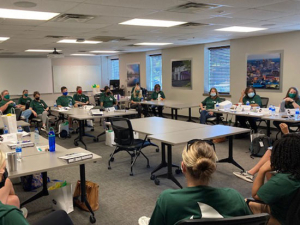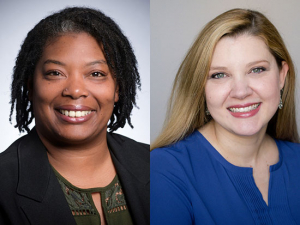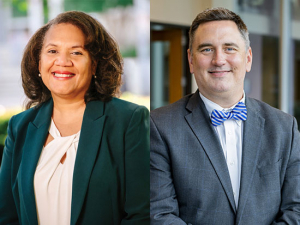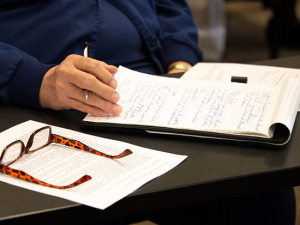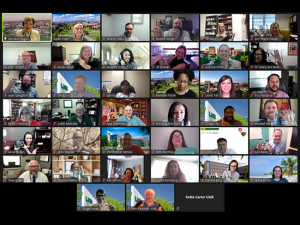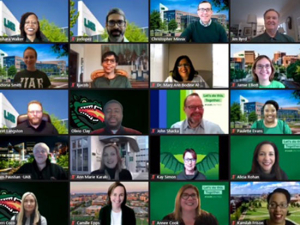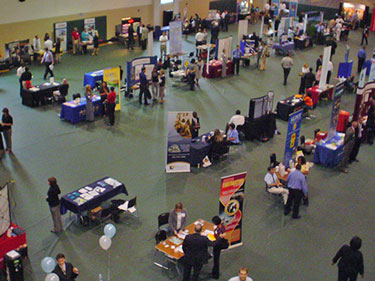 Today’s work environment is becoming increasingly complex.
Today’s work environment is becoming increasingly complex.
Many college students have likely heard their parents say, “You won’t get a well-paying job in today’s market place without a four-year degree.” And while that certainly rings true, there’s another element in play for undergraduate and graduate students that is as important as that piece of paper they receive on graduation day.
What else have they done to get them there — to get them to that point where they walk across the stage?
The skills needed to master the multifaceted demands of today’s employers go beyond a degree. A recent article in The Chronicle for Higher Education revealed that half of employers surveyed had trouble finding recent graduates qualified to fill positions at their company or organization. Nearly a third gave colleges just fair or poor marks for producing successful employees. And they dinged bachelor’s degree holders for lacking basic workplace proficiencies or “soft skills.” These include adaptability, communication skills and the ability to solve complex problems.
UAB’s Career & Professional Development Services is available to help faculty guide students into programs and opportunities to develop the professional skills needed in today’s environment. These include valuable internships — a number of which are posted on the Career Services website. The value of these internship opportunities for “on-the-job training” can’t be ignored, says Suzanne Scott-Trammell, director of the department. They are vital to job-seeking students and graduates.
| UAB’s Career & Professional Development Services is available to help faculty guide students into programs and opportunities to develop the professional skills needed in today’s environment. These include valuable internships — a number of which are posted on the Career Services website. The value of these internship opportunities for “on-the-job training” can’t be ignored, says Suzanne Scott-Trammell, director of the department. They are vital to job-seeking students and graduates. |
“The phrase I hear over and over is that internships are the new entry-level jobs,” Scott-Trammell says. “Due to the competition for jobs today, it’s important for students to have a value proposition. And that value proposition is: ‘What can you do for the company when you come on board?’
“They’ve got to have that experience to be the candidate of choice — and that’s whether it’s for a job or a graduate school. Graduate schools also are looking for candidates who demonstrate they are serious about their careers and taking the steps necessary to learn the professional landscape and contribute to the profession. It’s very competitive in both areas right now, and students have got to be able to get these experiences.”
The value of a story
Career management is both an art and a science. It’s a science in that there are steps that students must follow — go to school, make good grades, participate, learn. It’s an art in that they have to understand how the knowledge and skills they have acquired translate into what employers desire to have as part of their organization.
 This set of knowledge and skills is different for everyone based upon their areas of interest. Acquiring the knowledge needed comes from time and experience. Skills? Those are developed based on the time used engaging in the field of interest. And Scott-Trammell says that’s how students develop their story.
This set of knowledge and skills is different for everyone based upon their areas of interest. Acquiring the knowledge needed comes from time and experience. Skills? Those are developed based on the time used engaging in the field of interest. And Scott-Trammell says that’s how students develop their story.
The most marketable student is the one who is proactive in their areas of interest from the beginning of their college careers. Even if their interests change, they still gain valuable skills and show one trait all employers desire — initiative.
“We want them to start on this track as freshmen,” says Scott-Trammell. “If they start as freshmen and start shadowing and investigating what they want to major in and see what jobs they might be interested in, they are setting their foundation. Then, they can start a mentoring program and get an internship. And if the student doesn’t like what they’ve chosen, they can find out quickly and get out without wasting credit hours. The key is to start getting experience a little bit at a time, and by the time they’re a senior, they have a story, and they have a network. It needs to start early and progress.”
Doing this enables students to build a resume that showcases their knowledge and skills and highlights that they have already put the two together in their field of interest. How can this work for students? Imagine having the ability to interview with three years of evidence that shows the student has the ability to walk into an office and hit the ground running — even bring some new ideas that were learned from other competitors that might work, too. They have a roadmap they can point to and say, “Here’s how I learned to do this.”
| “The problem today for many students is that they graduate without a story. They have no background to show how they have developed outside of the classroom. And if a student graduates without a story, they are starting cold." |
“The problem today for many students is that they graduate without a story,” Scott-Trammell says. “They have no background to show how they have developed outside of the classroom. And if a student graduates without a story, they are starting cold. Then, they are sending resumes out en masse, without targeting and without anything. That’s not going to win. We know that’s not going to win. Marketing companies sure don’t do that. They have a story to tell.”
Recognizing the need
David E. Boyes, an associate with Sine Nomine Associates, a Northern Virginia technology consulting company that works with high-tech companies like Cisco and IBM, told The Chronicle that many recent graduates lack fundamental abilities, like how to analyze large amounts of data or construct a cogent argument. “It’s not a matter of technical skill,” Boyes told The Chronicle, “but of knowing how to think.” Most employers in The Chronicle’s survey grumbled that fresh hires weren’t adequately prepared in written and oral communication, decision-making and analytical and research skills.
Janelle Chiasera, Ph.D., chair of the Department of Clinical and Diagnostic Sciences, recognized the need for her students to excel in these areas — or at the very least, understand their importance to and valuable place in the working world.
So, Chiasera and her department faculty and staff teamed up with Career & Professional Development Services to develop a department-wide professional development program. This experience was required for all students entering one of the department’s eight programs, starting fall 2012.
| “The bottom line for us is that we believe that the success of our graduates is tied to a strong base of technical and academic skills overlaid with professional competence. This unique combination will provide a means for a successful transition from a student to a professional and a foundation to support the future growth and development of the graduate. We are trying to educate future leaders and to be a leader involves mastery of two important skill sets — technical/psychomotor skills and personal skills.” |
“Proficient technical skills and a strong theoretical base remain a very high priority to becoming an efficient and effective professional,” Chiasera says. “In addition, students and professionals need to understand the importance of thinking critically and performing in a professional, ethical, legal and competent manner.
“Providing the rationale for the importance of this development was challenging,” Chiasera adds. “One way we attempt to sell the value of this is bringing in our professionals currently practicing in our eight professional fields to help us sell the value of professional development in light of its impact on providing top-notch patient care. I’ve heard a number of them say they wish they had this type of training when they went through the program.”
Chiasera also has presented at a national conference on the efforts of Career & Professional Development Services and Clinical and Diagnostic Sciences to engage students in these areas, and her work has been met with great enthusiasm. Other universities have commented to her on their need to implement this type of training and instruction opportunities for their students.
Some universities already have taken the step of requiring these types of classes and training as part of the student curriculum. These courses are an elective at UAB, except in the case of Clinical and Diagnostic Sciences.
“The bottom line for us is that we believe that the success of our graduates is tied to a strong base of technical and academic skills overlaid with professional competence,” Chiasera says. “This unique combination will provide a means for a successful transition from a student to a professional and a foundation to support the future growth and development of the graduate. We are trying to educate future leaders and to be a leader involves mastery of two important skill sets — technical/psychomotor skills and personal skills.”
How to use internships, jobs
One big rub for many students is that most internships are non-paying. Students look at it as “donating” their time, knowledge and abilities to employers.
There are fields where that is a necessity, Scott-Trammell says. But there are internships and research opportunities that are available for credit, many of which are available on the Career Services website. And students who also work in addition to going to school should be encouraged to let Career & Professional Development Services help to see if they can find them an opportunity to work in their field of interest.
“We’ve got so many of our students that work,” Scott-Trammell says. “We need to talk to them about what their current part-time job is, and see if we can help them find one that builds the skills they need to have on a resume.
“Experience is experience, whatever the field,” she says. “Some fields pay, and some don’t. But students have to get the experience. They have to start building their reputation. They have to let people know who they are so when they do have a position, they will be at the top of their mind. They can also vouch for you for other jobs. They’ve just got to be thinking about their specific career field and understand the realities of what is going on in their field. What are the demands? Sometimes that means taking an unpaid position to get your foot in the door. And that’s OK. Once they see you’ve got a good work ethic and you’ve created a good reputation for yourself, when something comes available, they will think of you.”
Working with Career & Professional Development Services
Career & Professional Development Services is available to collaborate with faculty on ways to improve the outcomes of their students.
Scott-Trammell says they welcome the opportunity to collaborate with individual departments to translate what is being taught in the classroom to marketable skills, and to show students how to leverage what they are being taught. The goal is to teach students the proper way to use their experiences — whether classroom, internship, research, and/or volunteer — on their resumes and integrate all of that into their career stories.
Career & Professional Development Services has liaisons in almost every school at UAB, or faculty can contact Scott-Trammell directly at sstrammell@uab.edu or 934-4324 if there is an interest in collaborating.
Her team is available to do one-on-one conferences or meet in small groups to discuss how students can use class projects or other experiences to demonstrate they have built key marketable skills.
“Students often don’t give themselves the credit they should for their work because they don’t think about it that way,” Scott-Trammell says. “We want to help them understand how to market the courses and experiences they have to help them achieve their goals.
“We all need to be part of the team — faculty, staff, alumni, students and Career & Professional Development Services,” Scott-Trammell says. “We’ve all got to work together preaching this message. We have a lot of online resources. We have professional development team building. We can teach students to identify who they are and who others are so they can communicate effectively. We’ve got to get to the nitty-gritty. And we can do it, but we all have to work together.
“Involve us. Let’s all become strategic partners for student success.”
For more, visit Career & Professional Development Services’ website.

